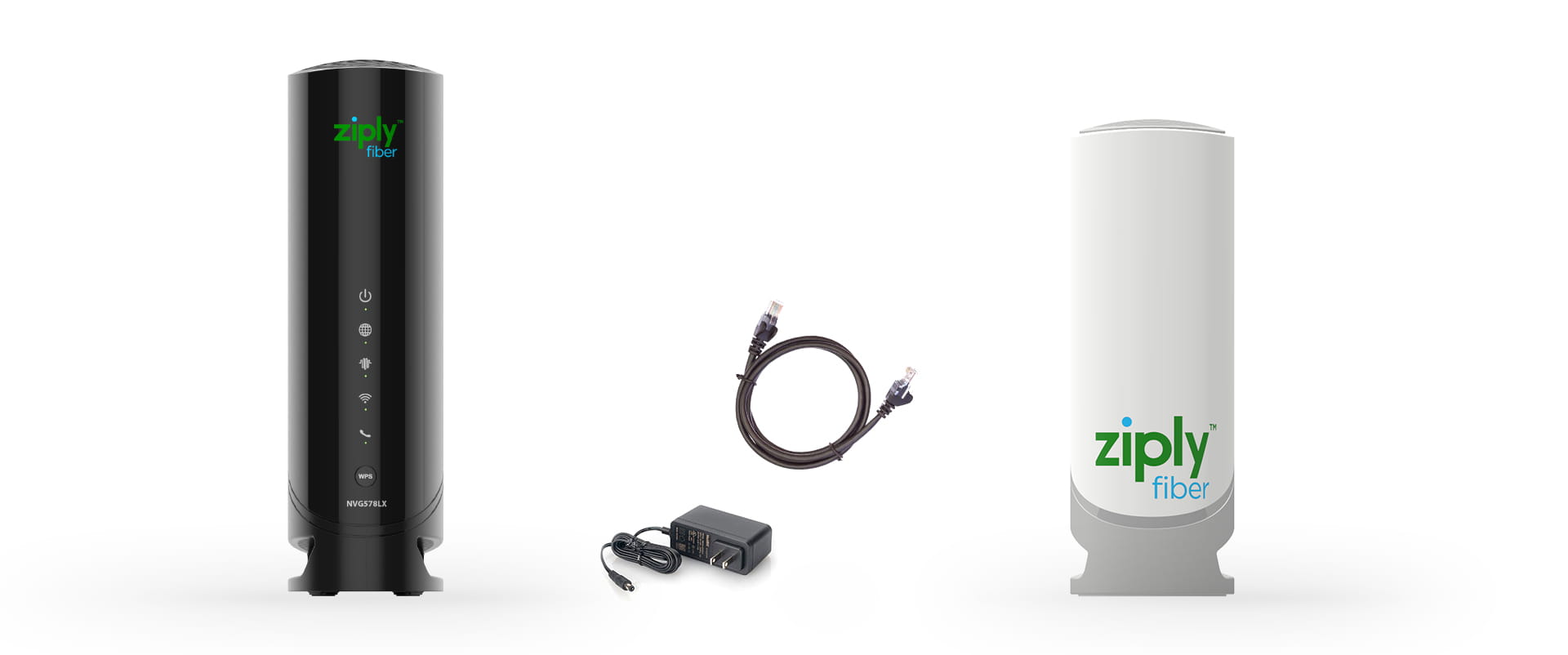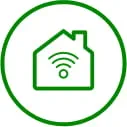WiFi is everywhere you go. From the coffee shop to the local park, you can connect to the internet practically any time you need to or want to.
But how does WiFi work, and does it matter what kind of network it's on? Let's take a look.
How WiFi works
WiFi uses radio waves to connect devices to the internet. WiFi doesn't fall from the sky—it depends on physical internet networks and translates the signal via a router. The strength of your signal depends on several factors, including the quality of your internet connection and router.
Fiber internet improves WiFi signals
Fiber internet's high speeds and stability can lead to better WiFi range and coverage. WiFi routers, often with the help of WiFi extenders, can efficiently distribute data to connected devices, reaching farther into your home or office. Faster WiFi speeds translate to quicker downloads, smoother streaming and reduced buffering times, allowing you to enjoy uninterrupted online activities.
Another great thing about fiber is that internet service providers can offer much higher bandwidth capacity. This means that multiple devices connected to the same WiFi network can enjoy faster speeds without slowing each other down. Households or offices with numerous connected devices will notice a significant improvement in overall network performance and responsiveness.
Read more: Why you should make the switch to fiber internet
Fiber internet is the most reliable connectivity solution
Traditional cable internet connections are slower, with asymmetrical speeds, and can suffer from interference and peak-time slowdowns. Fiber internet, on the other hand, offers equally fast upload and download speeds and more bandwidth on fiber-optic lines, which means less lag and buffering, no electromagnetic interference and minimal slowdowns.
This stability extends to your WiFi network, reducing sudden drops or slowdowns in connection that can be frustrating during critical tasks—or frustrating when the movie you're streaming starts buffering at a critical plot point.
Read more: Fiber vs cable: What sets these internet technologies apart?
Routers
Routers connect to your modem or, in the fiber-optic industry, an Optical Network Terminal (ONT). They translate the network signal into radio waves so that you can connect your devices without plugging an Ethernet cable into them.
When your connectivity starts to drag, your router is often to blame. Usually this can be fixed with a reset or by calling your ISP to update your router's software at the network level. You'll want to be sure your router is up to date and compatible with your service.
At Ziply Fiber, we offer two types of routers that are compatible with our state-of-the-art fiber network. Our WiFi 6 router optimizes internet plans that clock in lower one gig, and our new WiFi 7 router uses the latest technology to enhance the connectivity of our gig and multigig plans. (Customers who go beyond 5 Gig will need a specialized router that is built to handle more intense speeds.)
Read more: What equipment is needed for fiber internet?
WiFi 7
WiFi 7 takes internet speed to a new level. While traditional routers use two frequency bands, WiFi 7 opens up a third band, the 6 GHz band. WiFi 7 can also jump around all three bands, meaning you consistently have the smoothest, fastest connection possible. WiFi 7 is so powerful, many customers will find they no longer need WiFi extenders to reach dead spots around the house.
Read more: WiFi 7: the next generation of wireless connectivity
Fiber and WiFi are better together
Fiber internet and WiFi are complementary technologies that serve different purposes in providing internet connectivity. The faster your internet speed, the better your WiFi connection will be. A high-speed fiber internet plan will boost your speeds, reduce lag and provide more reliable connectivity, which will extend to your WiFi service.
Meanwhile, an optimized router designed to handle your ultra-fast fiber network connection will benefit your connectivity by boosting speed and coverage across all your devices. Together, these technologies work hand in hand to deliver seamless and efficient internet access to users.
As fiber internet infrastructure continues to expand, more users will be able to harness the power of this technology, unlocking the full potential of their WiFi networks. If you haven't already experienced the benefits of fiber internet, it might be time to consider upgrading and embracing the future of high-speed, reliable internet connectivity.
Check your address to see if our fast fiber-optic plans are available where you live.






